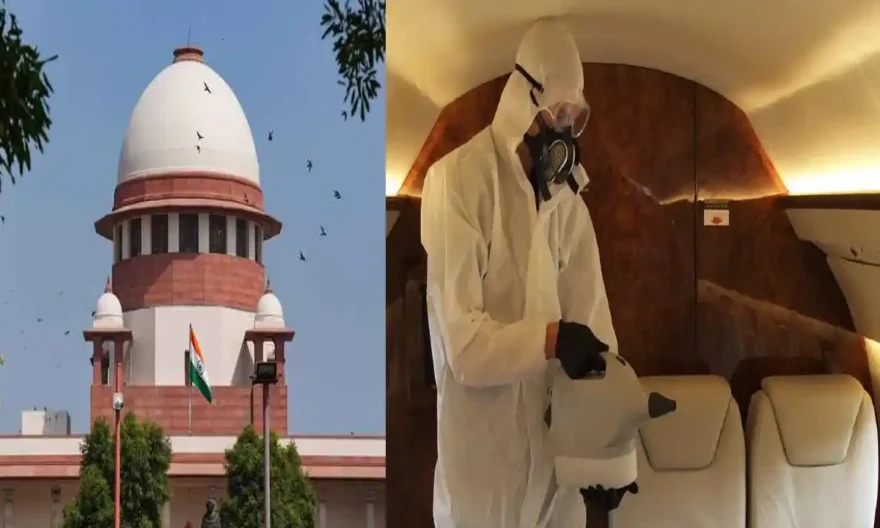
The Centre has recently informed the Supreme Court that it had accepted the expert committee’s suggestions for the aircraft disinsection.
In November 2019, the Supreme Court ordered an expert committee comprised of specialists from reputable institutions to investigate all pertinent aspects, including the need for aircraft disinsection as a measure intended to control the spread of vector-borne diseases.
On Wednesday, Additional Solicitor General Aishwarya Bhati, appearing for the Ministry of Health and Family Welfare, informed a bench headed by Chief Justice of India (CJI) D.Y. Chandrachud that all recommendations had been accepted.
The court agreed and directed that all required steps be taken.
Prof P Dash, Vice Chancellor, Central University of Tamil Nadu, Dr P Jambulingam, Ex-Director Vector Control Research Centre, Dr AK Singh, Joint Director (Research), Indian Agricultural Research Institute, Dr B Nagpal, Scientist (Entomologist) WHO (South East Asia Region), Dr (Prof.) Asutosh Biswas, Department of Medicine, AIIMS, and Dr Sandhya Kulshreshtha, Consultant Pharma comprised the expert committee.
The committee gave its report after studying World Health Organization (WHO) recommendations and best practises for aircraft disinsection followed by other countries.
The expert committee suggested procedures and the manner in which aircraft disinsection should be carried out in the report.
The Committee made these recommendations after reviewing the existing literature on the effect of disinsection on passenger health and safety.
The Centre has accepted nine of the committee’s suggestions following discussions with stakeholders, including passengers and airline representatives:
- Residual aircraft disinsection is superior to other procedures and is suggested.
- Pre-embarkation cabin and cargo treatment may be undertaken for flights landing in India on single-sector aircraft (non-stop flights).
- Pre-departure disinsection is required for flights landing in India from transit nations (multisector) endemic for vector-borne diseases (such as Yellow Fever, etc).
- The disinsection process at the destination airport may be carried out in accordance with the country’s regulatory requirements.
- Vector surveillance and control actions must be carried out around the aircraft bay to prevent mosquito breeding.
- Regular health monitoring and surveillance of crew members may include details on the negative health effects of disinsection.
- The used cans of insecticidal spray for the aircraft, along with GD, were to be submitted to the designated authorities upon arrival in India as proof.
- The health section of the GD forms should also provide information on any passenger or staff member who may be experiencing adverse effects from insecticide spray.
- For aircraft disinsection, WHO guidelines must be followed.




